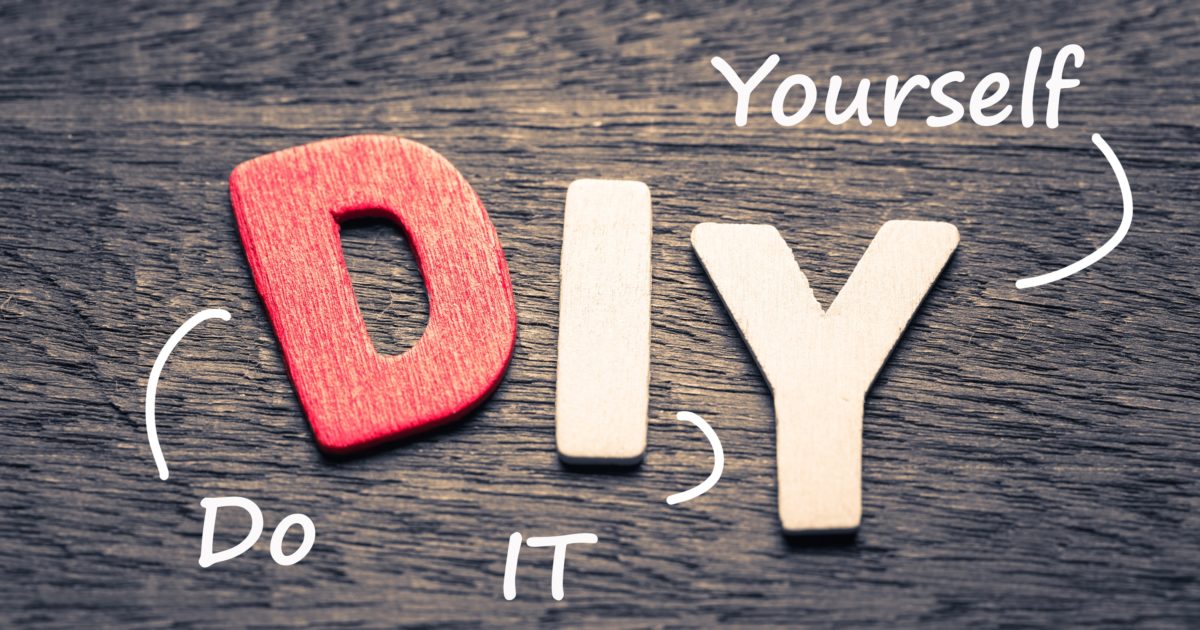Slider: People As A Means vs. Ends - An Interview With Dr. Derek Cabrera
 Staff
·
8 minute read
Staff
·
8 minute read
Staff: I'm curious to hear more about the slider, "People As A Means Versus Ends." And when I look at how you've drawn it up (see the map here), it seems to me that this slider has to do with how a person interacts with other people. Can you explain a little bit more about what the basics of the slider?
Dr. Derek Cabrera: Well, the the basic idea is to ask, what mental model are you using when entering into a relationship with another person? If you enter into a relationship with another person using a mental model that that person can be a means to your ends, that will lead to one type of relationship. And if you enter into a relationship with the mental model that that person is an ends in and of themselves and never a means to your ends, that will lead to a very different kind and depth of relationship, the latter being a much more healthy, functional, engaged and joyful relationship. And, the reverse is also true. Which is, you can use this slider to monitor whether or not other people are seeing you as a means or an end in your relationships with others.
Staff: Do you think that people begin relationships knowing which mental model they have about people and the way they relate to them?
Dr. Derek Cabrera: No, I don't. I think it's mostly unconscious and likely the result of mimicking the kinds of relationships you grew up with. So if you grew up with relationships, either from your parents or your family and so on, where predominantly, people were treated like a means to an end or looked at as a means to an end then there's a high probability that you will have adopted that mental model.
Staff: If we adopt the mental models from our experiences as younger people and carry those mental models unknowingly into our adult relationships what would lead us to question what our mental model is inside our relationships? Is it failed outcomes or our deep dissatisfaction in our current relationships that leads to that? In other words, how would we know that the reason we have bad relationships or relationships that aren't satisfying is the result of this mental model?
Dr. Derek Cabrera: Well, certainly your own displeasure about your relationships could be one doorway into this level of metacognition about why your relationships aren't working the way you would like. However, I would caution against that, because if you're a person that uses people as a means to your own ends all the time, you might be perfectly happy with the results of your relationships because you always get what you want out of people.
Staff: I see.
Dr. Derek Cabrera: So the slightly more dependable answer to your question is: this slider is designed to get you to become aware of these different mental models that you can approach relationships with. Becoming aware of that model, coupled with an ethical obligation pushes you to want to see people as an ends rather than as a means to your own ends. This leads to a choice to be more metacognitive; this slider encourages you to reframe the mental model through which you govern your relationships if needed.
Staff: As I'm listening to you about seeing people as means to an end. I keep thinking about politicians.
Dr. Derek Cabrera: Yeah. They're sort of the obvious people to think about.
Staff: So, many politicians use everybody around them as a means to their own ends at the cost of the people on the other side of the relationship. And that affects people and the relationships themselves.
Dr. Derek Cabrera: Well, I would say there's a great cost to the politicians as well. If we measure everything in how many funds you raise and you raise a lot, then it could appear that there's no cost to them. But there's a great cost to them. The cost of building trust, true engagement, collaboration, and in personal relationships the costs are even higher - losing joy, love, or never really knowing what a loving relationship feels like. So there are great costs to each person in a dysfunctional relationship. It could be true that if you simply use people as means to an end, there might be enough people quantitatively in the world that you could just simply use and use and use people. And that would be one way to possibly get wealthy but there are impacts to that as well. If people notice that you're constantly doing that, then they won't trust you in business and things like that.
Staff: Okay, I think it's easy for people to understand what it looks like when you use people as a means to your ends because they see it all over the place. What is the qualitative difference when somebody enters relationships, treating people as ends in and of themselves?
Dr. Derek Cabrera: Well, I think everything is different about it. But it really transforms the way that you approach any person, such that no one is here on this Earth to bring you what you want them to get you, what you want to be, or what you want to serve your needs.
Staff: So basically it means that you enter into that relationship without an agenda?
Dr. Derek Cabrera: Yes.
Interviewer: You come into that relationship solely for the purpose of relating.
Dr. Derek Cabrera: Engaging and relating to that person. Yes.
Staff: Not for the purpose of getting something.
Dr. Derek Cabrera: Not for the purpose of getting something from them. It is really the difference between a transactional relationship and a functional relationship.
Staff: So if I am a child and I grow up where every time I do something, I'm rewarded. Extrinsically like a chore chart or a cookie or whatever it is. And I turn into an adult that expects that same transactional "yummy" for everything I do. Then what you're saying is I'm going to fall into that trap where I'm going to be looking for that same transactional nature in my adult relationships. How does somebody to whom that seems normal change their mental model?
Dr. Derek Cabrera: That relates to a separate slider around intrinsic versus extrinsic motivation, and whether or not you want to develop that intrinsic motivator in yourself. If you grew up in a constantly transactional, stimulus → response → reward environment, then that extrinsic reward system will have been reinforced in you; and you would be more susceptible to utilizing people as a means to your ends.
Staff: So then the purpose of a slider generally is for people to think about the dynamics of their relationships. And this slider in particular is asking people to ask themselves, am I walking into relationships with this mindset or that mindset? And if it's the first one, what are the costs to me and others?
Dr. Derek Cabrera: And to see those costs. To really see those costs. Politicians are a great example, because if the only litmus test we use is how much money you're going to make, you might end up rich and lonely and that is a cost. In other words, you might look like you're winning, you know, but actually be losing. Similar to the old saying that you can "win the battle but lose the war".

The reason that sliders were developed is for what I call DIY self-help. Part of that comes from my own history as a very misunderstood brain, as an non-neurotypical brain, where I was misunderstood by the school system. And I misunderstood myself. ADHD as a concept didn't even exist when I was a child. So the adults in my life didn't know that there were different types of brains. And so as a result of that kind of life, in my 20s and even 30s, was looking for ways to figure things out, and none of them worked for me.
Staff: So why do the sliders work?
Dr. Derek Cabrera: I invented sliders because they worked. Sliders are bite sized, little meaty mental models. That's why I called them sliders. They influence behavior that you can do repeatedly and you can work on them one at a time. Every morning, I used to draw them on my mirror with a dry erase marker, and I would work on a slider for a week or two to get it to become a habit. So it was really DIY. Do it yourself, self help. The collection of many sliders over time creates a healthy individual and healthy behavior change.
Staff: So what you're saying is a slider is a way for you to become aware of a mental model. In this case, how you're treating people in your relationships, and once you are aware of that mental model, you can change how you behave in those relationships and hopefully improve them over time.
Dr. Derek Cabrera: That's absolutely right. And I agree with all that. I guess I would add one thing, which is that complex adaptive systems or CAS's use simple rules. And one of the things that people don't understand is that it's not just one set of simple rules that an agent uses, they actually use simple rules sets that are structurally coupled with the situation. And those are called schema. (Schema is synonymous with mental models.) So the way the brain works, is that when we're in a particular context, like a restaurant, we call forth our restaurant schema. And we know that a waiter will be coming to the table, that, you know, you'll make an order for an appetizer, drinks first, then you know, blah, blah, blah. We all have that schema because we built that mental model. And that schema isn't in our head all the time. It's only in our head when the context of a restaurant comes up. So what these DIY self-help sliders do for you, is with practice, they come up when they're needed in a specific context as simple rules to guide your behavior. Over time, they become the simple rules of your life. So for me, it's a simple rule that you never use another human as a means to your ends, that you should always see them as an end in themselves. So when the context of being in a relationship with another human arises, that mental model comes to the forefront of your mind as a simple rule for that relationship.
Staff: So you're saying the mental model, when practiced over and over again, becomes a habit, which is a simple rule that you think of in a situation?
Dr. Derek Cabrera: Yes, you can have slider's that are about communication. You can have slider's that are about conflict. And when you're in conflict, all of a sudden that appropriate slider comes forth as a tool that is incredibly useful to you in that situation. But, a minute before, when you weren't in that situation, that slider wasn't at the forefront of your brain. That slider has become normative for you because of practice.
For example, you meet somebody new and and you find yourself thinking: "this person who has some power or influence that could help me advance in my career or life." This slider teaches us to resist that temptation and instead approach them as a human being (an end in and of themselves). And the irony is, the more you engage with that person as a human being, because karma etcetera, the more the doors they'll probably open for you because you engaged with them authentically as an end in and of themselves and not as a means to your ends. When you choose to use people as ends rather than people as means you get much, much more than you would have gotten had you simply treated them as as means. Whatever it is that you need or want, or whatever hole in your life that you're trying to fill—it's key to remember that people are not filler for the holes in your life.
Staff: Yeah. I understand completely.
Dr. Derek Cabrera: I was watching the other day on this show Last Chance U, one of the coaches was really struggling with this slider because he was very upset about the notion that college sports often treat student athletes as physical specimens that they just run through. They get injured, and then they're gone and replaced with another one. He was really struggling with "how do I run a program that doesn't treat kids like that, like a means to an ends?" One that treats these kids as ends in and of themselves.
Staff: Right. You get a better performance out of them anyway. And what you're saying is if a coach approaches an athlete as an end in and of themselves, the strength of that relationship that's formed between the coach and the player will increase the performance of that athlete. So you'll actually get more of the athlete.
Dr. Derek Cabrera: Yeah. Those kids are not the means to a winning season or to getting a promotion as a coach. Those kids are ends in and of themselves. And you have a moral, ethical obligation not to treat them as means to your ends.
Staff: This is very helpful. Thank you very much.
Dr. Derek Cabrera: Sure.
.png?width=150&height=150&name=CRL%20GOAT%20Logo%20(4).png)


